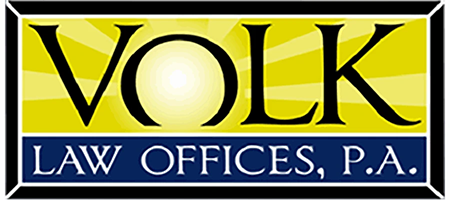Creditor Rights Lawyer
When a customer, or debtor, fails to pay their debts, the creditor (business to which the debt is owed) has several options that do not require court involvement. Generally, the business (or creditor) will contact the customer directly to demand payment. If the customer does not come to an agreement of repayment to the creditor, or a certain amount of time has passed in which the creditor has been unable to successfully contact the debtor, then the business usually transfers the debtor’s account to a debt collector. Debt collection agencies are regulated by the FDCPA (Fair Debt Collection Practices Act) in order to avoid abuses. However, the FDCPA only applies to regular debt collectors, and not to creditors or businesses collecting their own debts. The FDCPA prohibits deceptive practices, and describes when, where, and how the debtor may be contacted. The debtor may be permitted to recover damages if a debt collector violates the FDCPA.
Secured transactions increase the probability of repayment on bad or overdue debts. For example, home or car financing is secured by that purchased property. Therefore, if the agreed upon payments are not made, the creditor can repossess the car or take back the home in an effort to recover some of the remaining debt. Basically, a secured transaction gives the lender a claim to the debtor’s specified property to ensure payment of the debt. If there are competing claims to the specific property or earnings from the sale of the property, then the secured creditor takes precedent over an unsecured creditor. In order to achieve this higher status, however, the creditor is required to file certain documents. The majority of consumer transactions are unsecured.
If "self-help" remedies do not work for the creditor in order to collect on a debt, the next step would be to initiate court proceedings. This should only be considered when there is risk to the property involved, like with perishable goods, or if the collateral would rapidly decline in value. In those extreme measures, the creditor may be allowed to seize and recover the debtor’s property prior to the court’s final decision in the matter. Replevin and attachment (similar to garnishment), are two of the more common pre-judgement remedies. In a replevin action, if the debt is not repaid, the creditor that holds the title to the property involved may take that property back. For example, if a debtor has leased furniture and fails to make the payments, the lender may be entitled to take back the property. Usually, a notice and hearing requirements must be satisfied before seizure of said property can take place, unless the property is in immediate danger of damage or destruction, or other extreme circumstances, in which case those requirements may be waived. If an order of replevin is issued, the county sheriff is generally responsible for seizing the property and returning it to the creditor.
Details of attachment vary from state to state and is used only in extreme cases, much like replevin. For example, if a debtor is about to sell or get rid of the involved property, attachment procedures should be initiated immediately. Attachment proceedings usually entail a court hearing where the court issues an order authorizing the lender to seize the debtor’s property or title to that property. If all of the above remedies fail to bring successful collection of a debt, or at least a satisfactory conclusion, the creditor can sue the debtor, or even initiate involuntary bankruptcy proceedings if the debtor owes a substantial amount to multiple creditors.
For more information regarding creditor rights, or if you know you may need a lawyer for impending court proceedings, please do not hesitate to contact Volk Law today!
The matters discussed here are general in nature and are not to be relied upon as legal advice. Every specific legal matter requires specific legal attention. The law is constantly changing and matters discussed today may not be the same tomorrow. Legal matters are also subject to different interpretations by attorneys, judges, jurors and scholars. No attorney-client relationship is intended or created as a result of matters discussed here. You should consult counsel of your choice if you have any dealings in these areas of the law. Volk Law Offices, P.A. and its attorneys make no representations or warranties with respect to the accuracy or completeness of the matters addressed.

